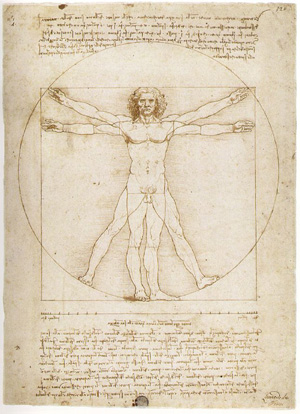

| (Introductory Activity) |
Sizing Up Your Body Parts |
|
|
The sizes of our body parts are related to each other in several ways. Try measuring different parts of your body and compare them. For this activity, you will need a cloth measuring tape and a friend to hold one end of the tape. 1. Stretch your arms out wide to either side of your body. Measure the distance from the longest fingertip of one hand to the longest fingertip of the other. Then measure your height. These two measurements should be about the same.
Information Source: Bosak, S. V. “Science is: A Source Book of Fascinating facts, projects and Activities.” |
